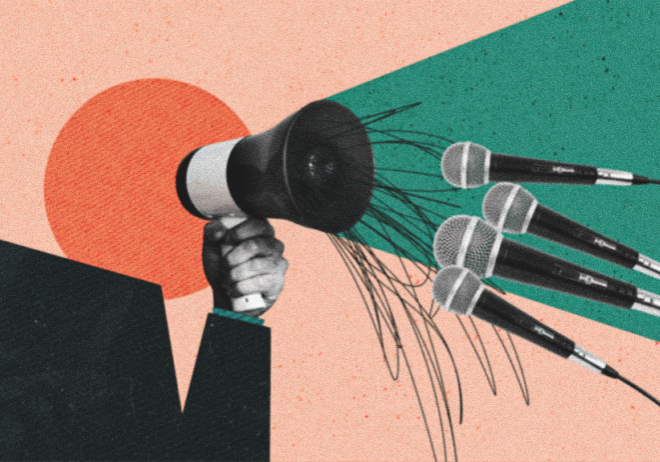
The Role of AI in Digital Marketing Revolution
As the digital revolution progresses, an increasing number of businesses are turning to Artificial Intelligence (AI) to enhance their marketing strategies. In today’s tech-savvy world, AI is crucial for staying competitive in digital marketing, providing numerous opportunities to boost ROI and optimize campaigns for better results.
In today’s competitive landscape, businesses must recognize the potential of AI to gain a competitive advantage and reach their objectives. However, integrating AI into operations requires careful planning, ethical considerations, and ongoing education.
AI is a dynamic and intricate field that necessitates continual adaptation and enhancement. Therefore, businesses cannot overlook AI but must embrace it with a strategic and ethical mindset.
Digital marketing is crucial in today’s world
In our increasingly digital world, online marketing has become a necessity for businesses looking to achieve success. The advancements in technology and the rise in internet usage have made having an online presence vital for creating effective marketing strategies.
Statistics show the significant impact digital marketing can have on modern businesses. Current estimates suggest there are 4.9 billion internet users worldwide, accounting for 63% of the global population. This provides businesses with a huge platform to reach potential customers.
Businesses cannot overlook the importance of social media. Through these platforms, businesses can build strong and lasting relationships with their customers. Research shows that a majority of social media users (54%) use these platforms for research and information gathering.
As online marketing continues to grow in importance, e-commerce has also seen rapid expansion. Online sales have led to major changes in consumer behaviour as more people turn to online shopping. The increasing popularity of mobile commerce further emphasizes the need for quick and efficient mobile commerce development.
How AI in digital marketing utilized
AI provides numerous advantages to digital marketers, enabling them to enhance their campaigns. AI can optimize ad reach, target specific audiences, identify potential customers, personalize content, analyse campaign performance, suggest new strategies, and automate tasks. By utilizing AI technology, marketers can gain valuable insights into customer behaviour that would otherwise be challenging to obtain. This enables them to create more impactful campaigns and increase their return on investment (ROI).
Moreover, AI-powered automation tools can save marketers time by handling tedious tasks like data entry and analysis. With AI tools managing these routine tasks, marketers can focus on developing innovative campaigns to differentiate themselves from competitors. AI-driven marketing technology is transforming the digital marketing landscape and will remain a crucial component of marketing strategies.
The potential applications of AI in marketing are vast, but it is essential to follow certain steps when integrating AI into your digital strategy. Firstly, understanding how AI functions and its effective utilization within your business is crucial. Once you have a clear grasp of this technology, you should assess which strategies align with your specific goals and objectives.
How can it help?
1. AI-powered customer segmentation
AI can segment customers into groups by analysing their behaviour, preferences, and past purchases. This allows marketers to accurately target the right audience with their messages based on what they have been proven to respond to.
2. Optimized content creation
AI can help marketers create better content by understanding consumer needs and interests through natural language processing (NLP) algorithms. By leveraging insights from data collected about user interactions, AI can craft more relevant content that resonates with the target audience.
3. Automated personalization
Using advanced machine learning techniques, AI can be trained to optimize web pages automatically for each visitor in real time according to their browsing behaviour and interests. This allows webpages to be tailored to each customer’s specific needs, leading to higher conversion rates.
4. Predictive analytics
AI can help marketers predict future trends and behaviours by analysing past data sets such as purchase histories, demographic information, etc. With this knowledge, marketers can design effective campaigns that are better targeted at their ideal customers.
5. Automated campaign management
AI enables marketers to automate many aspects of running a successful marketing campaign from start to finish, freeing up time for them to focus on creative tasks or develop strategic plans. AI can optimize budgets based on performance metrics to set up ad scheduling or A/B testing ads for maximum efficiency.
6. Optimized ad targeting
AI can help marketers target the right audience with their ads by analyzing customer data and understanding user preferences. With AI, marketers can create highly targeted campaigns tailored to each individual’s interests – leading to higher conversion rates.
7. Automated optimization
AI algorithms can constantly optimize a digital marketing campaign in real-time according to performance metrics such as clicks, impressions, and conversions. This allows campaigns to be tweaked and adjusted to maximize return on investment (ROI).
8. Measurement & Reporting
AI helps marketers track key performance indicators (KPIs) in real-time to identify which strategies are working and which need improvement. AI-powered analytics tools can generate detailed reports on the performance of campaigns, allowing for data-driven decision-making.
What are the advantages of using AI to enhance content and campaigns?
1. Enhanced performance
AI-optimized content has been proven to perform better than manual efforts in terms of reach and engagement. AI algorithms can quickly identify the most effective content, leading to significantly improved results compared to traditional methods.
2. Increased efficiency
Automated content optimization reduces the time spent on manual research and analysis to determine what works best with campaigns. This saves time and resources, allowing organizations to focus on creating quality content or exploring new marketing strategies.
3. Improved targeting
By utilizing AI-driven tools to analyse customer data, organizations can accurately predict consumer behaviours and create highly targeted campaigns that provide personalized experiences for each user.
4. More accurate predictions
AI algorithms can efficiently sift through large amounts of data to identify patterns and trends that may not be easily noticeable to humans. This enables marketers to make more informed decisions about their content and campaigns, ultimately leading to better performance outcomes.
5. Enhanced scalability
AI-optimized campaigns are scalable and can accommodate larger user populations without requiring additional resources or manpower. This is particularly beneficial for organizations with limited budgets that need effective ways to reach larger audiences with minimal costs.
Elevator pitch
Although there are numerous advantages to using AI in digital marketing, it is crucial to acknowledge the potential challenges that may come up. By recognizing these risks and implementing strategies to address them, businesses can maximize the benefits of their AI investments.

